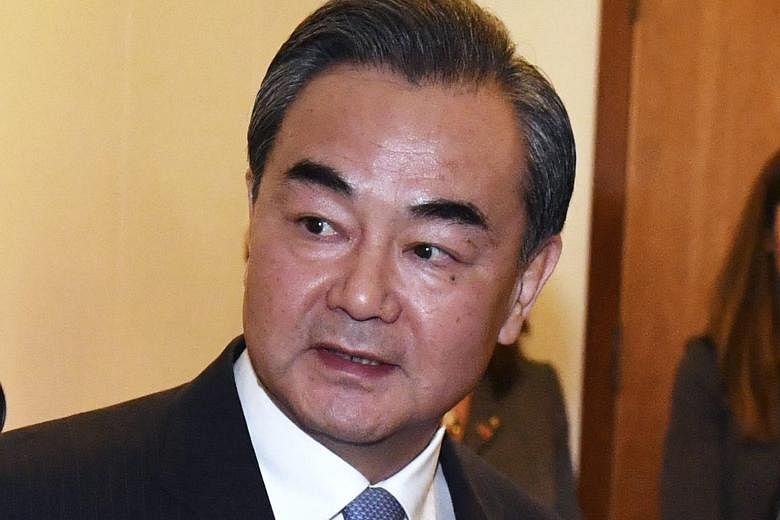SHANGHAI • China will suspend all imports of coal from North Korea starting today as part of its efforts to implement United Nations sanctions against the country.
The Ministry of Commerce said in a short statement yesterday that the ban would be effective until Dec 31.
The ministry did not say why all shipments would be suspended, but South Korea's Yonhap news agency reported last week that a shipment of North Korean coal worth around US$1 million (S$1.42 million) was rejected at Wenzhou port on China's eastern coast.
The rejection came a day after Pyongyang's test of an intermediate-range ballistic missile, its first direct challenge to the international community since United States President Donald Trump took office on Jan 20.
Last April, China announced that it would ban North Korean coal imports in order to comply with UN sanctions aimed at starving North Korea of funds for its nuclear and ballistic missile programmes.
But it made exceptions for deliveries intended for "the people's well-being" and not connected to the nuclear or missile programmes.
Coal is one of North Korea's only sources of hard currency and its largest single export item. China is believed to be the only country buying North Korean coal.
Despite its recent anger at Pyongyang's nuclear and missile tests, Beijing remains North Korea's most important economic and diplomatic backer, and it frequently comes under suspicion for not properly enforcing sanctions.
Despite the restrictions, North Korea remained China's fourth biggest supplier of coal last year, with non-lignite imports reaching 22.48 million tonnes, up 14.5 per cent compared with 2015.
Analysts have said that full Chinese cooperation is needed for the sanctions against Pyongyang to be effective.
China's order to suspend coal imports came a day after Chinese Foreign Minister Wang Yi said in Munich that UN Security Council resolutions - including sanctions - against Pyongyang should be fully implemented.
Speaking at the Munich Security Conference on Friday, Mr Wang called for a resumption of six-party talks on Pyongyang's nuclear programme, saying that a "negative cycle" of nuclear missile tests followed by sanctions must end.
"Today, what we see is nuclear test, sanction, nuclear test and then sanction again," he said.
"This negative cycle should not continue. Because the ultimate end result could be something that no one can bear. It's a situation where everyone loses."
"There are still opportunities for the resumption of six-part talks," Mr Wang added, referring to talks with the US, South Korea, China, Japan and Russia. "On this point, the US and North Korea... must quickly come to a political decision."
North Korea quit the now-stalled negotiations aimed at curbing its nuclear weapons programme in 2009, and soon afterwards carried out its second atomic test.
REUTERS, AGENCE FRANCE-PRESSE

